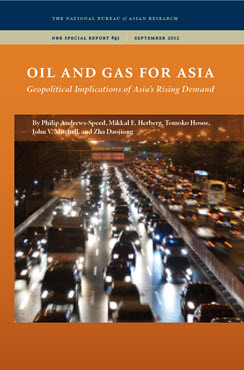Do Overseas Investments by National Oil Companies Enhance Energy Security at Home?
A View from Asia
This essay examines the driving forces behind the overseas investment activities of Asian national oil companies (NOC) and assesses the extent to which they enhance the energy security of their home countries.
EXECUTIVE SUMMARY
This essay examines the driving forces behind the overseas investment activities of Asian national oil companies (NOC) and assesses the extent to which they enhance the energy security of their home countries.
MAIN ARGUMENT
The rapid expansion of overseas investment by Asian NOCs has been driven by a number of policy objectives both in these companies’ home countries and in their host countries. For Asian governments, security of energy supply is a high priority, but other priorities include industrial and diplomatic policies. The NOCs have their own priority, which is to internationalize their operations. Overseas investment by NOCs makes little direct contribution to the energy security of their home nations because oil markets and, to a lesser extent, gas markets are now much more integrated. However, the greater engagement of Asian NOCs and their governments in the hydrocarbon-rich regions of the world may still indirectly enhance the security of supply. Nonetheless, even though overseas investment yields a few benefits, it can have significant costs.
POLICY IMPLICATIONS
- Even if overseas investment by Asian NOCs does not significantly enhance security of energy supply, the governments of these Asian countries will likely continue to support their NOCs as long as the other objectives are also met, oil prices remain relatively high, and host governments are willing to give them preferential treatment.
- Overseas investment by Asian NOCs does not undermine global security of oil and gas supplies. To the contrary, a greater number of investors and a larger flow of investment capital into the development of oil and gas fields tend to enhance security of supply.
- The more proficient Asian NOCs will provide competition to international and independent oil companies from North America and Europe, and this competition may not always be fair given the level of financial and diplomatic support that Asian NOCs receive from their governments and banks.
- As the political profile of Asian governments in petroleum-rich regions rises, they will increasingly seek to be involved in any diplomatic initiatives launched by North America and Europe.


